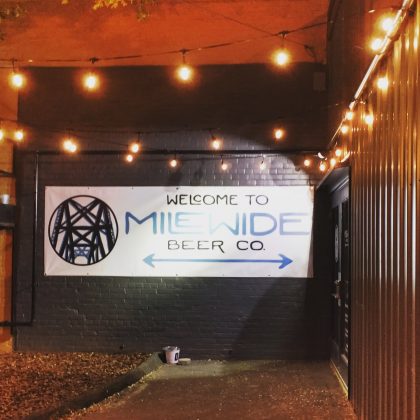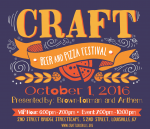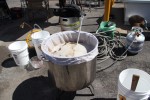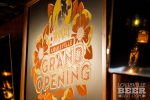 If there’s one thing I’m relatively decent at besides drinking beer, it’s writing belated reviews of events. Maybe it’s because it takes reading others’ reviews and opinions to help organize my jumbled mess of a brain into coherence. It may also be because it takes me longer to process something so dense and crammed-full of ideas as a 6-hour long symposium. It also took me a minute to get over the reminder of how much I dislike sitting in a classroom. Whether it’s one or all of these reasons, the fact remains that the Craft Writing Asylum…ahem, Symposium, was a milestone for the craft beer movement in our region. Being both a professional brewer and an amateur writer provided a unique perspective on the event. “Brewing is hard. Writing is really , really hard”, remarked Garret Oliver, keynote speaker of the event, implying that one must have a certain level of insanity to undertake writing a book (imagine the daunting task of editing The Oxford Companion to Beer). Rather than summarily recap every speaker’s tutelage, a few points in particular resonated with me in my discombobulated mind-wiring (brain).
If there’s one thing I’m relatively decent at besides drinking beer, it’s writing belated reviews of events. Maybe it’s because it takes reading others’ reviews and opinions to help organize my jumbled mess of a brain into coherence. It may also be because it takes me longer to process something so dense and crammed-full of ideas as a 6-hour long symposium. It also took me a minute to get over the reminder of how much I dislike sitting in a classroom. Whether it’s one or all of these reasons, the fact remains that the Craft Writing Asylum…ahem, Symposium, was a milestone for the craft beer movement in our region. Being both a professional brewer and an amateur writer provided a unique perspective on the event. “Brewing is hard. Writing is really , really hard”, remarked Garret Oliver, keynote speaker of the event, implying that one must have a certain level of insanity to undertake writing a book (imagine the daunting task of editing The Oxford Companion to Beer). Rather than summarily recap every speaker’s tutelage, a few points in particular resonated with me in my discombobulated mind-wiring (brain).
The first theme of the day that stuck with me in a broad sense was the fact that writing and documentation have truly carried the craft beer movement. Without writing, beer’s trek through the hearts and minds of people would have been more of a leaky faucet trickle, rather than a co2-forced draft line. Digital media has transformed the way we see, hear, and feel beer. Blogs, magazines, tweets, status updates, reviews, photographs, and books have had a staggering impact on the craft beer movement. You’re reading this article, aren’t you? Words weave stories and words can make an impact. Julie Johnson, from All About Beer magazine, when asked for a piece of advice during the Q&A, simply emphasized the importance of reading good writing and to dispose of the bad writing. Think of it as natural selection for the beer (and writing) industry. Instead of sharing some article that is poorly written and only vaguely on the topic of craft beer solely because it has a pint of beer pictured on the cover, be selective with what you perpetuate. Keep craft beer alive by writing about it. Spread it like the plague.
The second major element of the day that clung to my brain was, as Garrett Oliver so eloquently entitled his presentation, “beer is people”. This simple statement verily sums up the craft beer movement. Beer is the people who make it. Beer is the people who drink it. Beer is the people who write about it. Beer is the people who pass it down from generation to generation. Beer is a community. As craft beer enthusiasts, it is our job to keep the craft alive by continually seeking information, perspectives, flavors, as well as continually documenting it. “Sophistication is an open mind”, stated Oliver towards the closing of the symposium. With craft beer garnering more and more attention and support, rifts begin to form within the movement itself. Yes, the spread of delectable libations is good, but when the focus of what the movement actually means gets lost, it is then that those rifts are formed and maintained. That is why the statement “beer is people” is so important to remember.
When this conference was announced, I immediately registered to attend. The roster of speakers blew me away. Stan Hieronymus’s book, Brew Like a Monk, is probably my favorite beer-related book, and was a huge inspiration for me. Roger Baylor is my boss, so I have to like him. Garrett Oliver’s work in the brewing industry is monumental, having edited The Oxford Companion to Beer and authored The Brewmaster’s Table. Not only were there highly influential speakers on the bill, but getting to share a room amongst 250 other craft beer enthusiasts, with not a single pint in sight, (except when we snuck away during lunch break) was a thing of beauty. I truly hope to see more events like this in the future. Cheers to Jeff Rice and the University for putting such an inspiring event together. We all love beer and we all love to write. Just remember: beer is you, beer is me, beer is us, beer is people.





